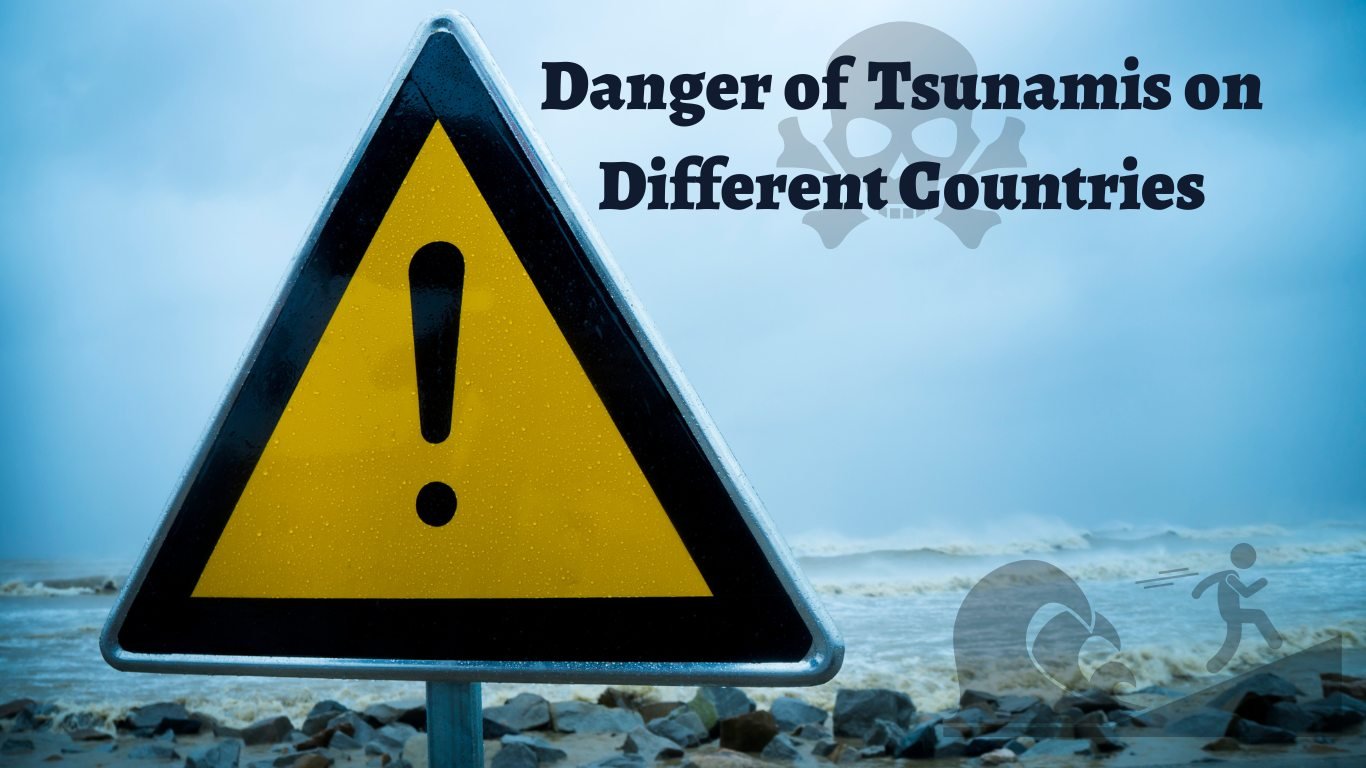The Danger of Tsunamis on Different Countries
Poonam Junjunwala
. 3 min read
A Tsunami is a series of waves that are extremely long and are caused by a large and sudden displacement of the ocean. This movement of the ocean is typically the result of an earthquake that occurs on or near the ocean floor. Waves are generated as a result of this force, and they propagate away from their origin in all directions, sometimes traveling the length of entire ocean basins. Tsunamis, in contrast to wind-driven waves, move throughout the entire water column, from the ocean floor all the way up to the surface of the water. Wind-driven waves only move through the topmost layer of the ocean.

Combined Effects of Earthquakes and Tsunamis:
The effects of a large local tsunami are likely going to be on top of the effects of an earthquake that came before it. The combined effects of these two natural disasters may set off secondary hazards, which could be even more catastrophic than the direct destruction. Both earthquakes and tsunamis have the potential to cause fires, accidents involving transportation, and the release of hazardous materials into the environment, which can contaminate water supplies and pose a risk to public health. These impacts have the potential to make evacuation, response, and recovery even more difficult.
Impacts of Tsunamis on Human Health:
Tsunamis can have a range of negative impacts on human health. Physical injuries from the force of the wave and debris is one of the direct impacts. Flooding from tsunamis can also lead to contamination of water supplies, which increases the risk of waterborne diseases. The destruction of infrastructure can make it difficult for people to access medical care, leading to an increased risk of injury and illness. Additionally, the stress and trauma of experiencing a tsunami can lead to mental health issues such as depression and post-traumatic stress disorder (PTSD). People who lose their homes, possessions and community support networks can also be at increased risk of physical and mental health problems.
Tsunamis in Less Developed Countries: Devastation and Impact on Mental Health
When they strike less developed countries, tsunamis can have devastating effects, and this is especially true along the Ring of Fire, an area known for its high seismic activity. The Aftermath of Tsunamis on Mental Health Distress is felt by those who have been impacted by natural disasters like the tsunami, earthquake, and others. The risk of not getting enough sleep, as well as having nightmares more frequently, also rises when anxiety levels are elevated. Amplification of human anxieties brought on by aftershocks. At the level of the community, people are becoming more reclusive and disengaged. Adults showed significant increases in depressive symptoms, anxiety, and overall psychological distress, according to research conducted in post-disaster settings on a global scale.
Impact of Natural Disasters on Children's Mental Health
Children who have been impacted by natural disasters are in a particularly vulnerable state and may experience a wide range of mental health and psychosocial issues. Adults may experience feelings of confusion or anxiety as a result of this, particularly if they observe children reverting to behaviors typical of younger children, such as wetting the bed, or if the children begin to relive scenes experienced during the disaster or conflict while playing with others.
Effects of the tsunami on the economy: Lost business
Tsunamis can have significant effects on the economy, one of which is lost business. When a tsunami strikes, it can cause significant damage to infrastructure, buildings, and homes. This damage can make it difficult or impossible for businesses to operate. Businesses that rely on tourism, such as hotels and restaurants, may suffer greatly because the tsunami can make the area uninhabitable or unappealing to visitors. Also the fishing industry can be affected by the tsunami, which can damage or destroy boats, gear, and processing facilities. Retail businesses and other service providers may also struggle because people will have less money to spend as they rebuild their homes and lives.
Maintaining Business Operations and Providing Employment:
Any significant catastrophic event will result in a disruption of both the activity and continuity of business. Some service industries, such as those providing power and water, as well as construction and building companies, will experience an increase in product demand in the aftermath of the disaster, while other service sectors will experience a decline in their overall business activity. Additionally, there may be significant shifts in the employment market, with high rates of unemployment likely to occur in most industries because of the destruction or severe damage sustained by businesses.
Understanding Tsunami Threats and Warnings: How to Stay Safe
- Tsunamis pose a threat to people living in coastal areas when they come close to land.
- As tsunamis enter shallow water near coastlines, their speed drops, and the height of the waves increases, leading to an increase in the intensity of currents.
- Tsunami warnings can take many forms, such as local radio and television broadcasts, weather radios, wireless emergency alerts, and social media platforms.
- People should also be aware of natural warnings of tsunamis, such as long and powerful earthquakes, a loud sound from the ocean, and sudden changes in sea level not related to the tide.
- It's important not to wait for an official warning, both natural and official warnings are equally important, and it is best to ensure that the proper evacuation routes, and emergency plans are in place.
More Stories from
Biotechnology and the Future of Medicine: Advancements and Ethical Concerns
This article explores precision medicine's personalized treatments, the promise and ethical challenges of gene editing, the potential of artificial intelligence in healthcare, and the future of organ transplantation.
The Importance of the "Three Rs": Reduce, Reuse, Recycle
This article highlights the significance of the "Three Rs" - Reduce, Reuse, Recycle - in promoting sustainable practices and protecting the environment.
Unveiling India's Volcanic Secrets: A Geological Overview
Explore India's unique volcanic history and the enduring forces of nature that continue to captivate scientists and adventurers alike.
Zero-Waste Living: Practical Tips for Reducing Environmental Impact
Discover the power of zero-waste living as this article offers practical tips and actionable advice for reducing your environmental impact.
Eco-Friendly Practices: How Individuals and Businesses Can Make a Difference
Discover the Power of Eco-Friendly Practices: Learn how individuals and businesses can contribute to a greener world by adopting sustainable measures.










.png?width=40&aspect_ratio=1:1)


.png?width=40&aspect_ratio=1:1)